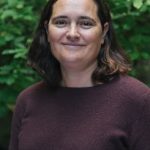Abstract:
Synthetic permanently porous materials are poised to play a key role in our transition to a more sustainable society. Owing to their structural and chemical modularity, synthetic frameworks, such as metal–organic, covalent, and hydrogen-bonded networks, are uniquely amenable to realizing highly specific functionality for emergent clean energy applications. However, desired performance for many pressing challenges, such as H2 delivery and light harvesting for electricity generation, continue to elude established framework classes. Thus, the pursuit of synthetic porous frameworks with emergent behaviors and of entirely new classes of frameworks is essential. In this vein, this talk will cover two distinct efforts to diversify function and form. First, recent efforts to harness reversible framework flexibility to enhance usable capacities of hydrogen storage and delivery will be discussed. Then, the recent discovery of a novel class of frameworks assembled and stabilized through noncovalent chalcogen bonds, called Chalcogen-Bonded Organic Frameworks (ChOFs), will be detailed.
About the Speaker:
Mike attended the University of Minnesota, where he majored in chemistry and worked in the lab of Prof. Bill Tolman studying copper-oxo complexes. Mike then pursued his Ph.D. in chemistry under Prof. Chad Mirkin at Northwestern University, where he focused on the design and synthesis of stimuli-responsive coordination complexes for regulated catalysis. After completing his Ph.D. studies, Mike joined Prof. Jeffrey Long’s group at UC–Berkeley as a Philomathia post-doctoral fellow. In the Long Group, Mike’s work was focused on the design, discovery, and characterization of non-classic gas adsorption in metal–organic frameworks. In 2019, Mike took his position in the Department of Chemistry at Colorado School of Mines, establishing the Supramolecular Materials Chemistry laboratory. The lab’s work addresses fundamental scientific challenges related to porous materials, supramolecular assembly, and environmental sustainability, leveraging expertise in noncovalent interactions, structural order, and chemical reactivity to develop synthetic tools for the by-design construction and programmed destruction of functional materials. The McGuirk Lab was recognized with the NSF CAREER award from the DMR SSMC program in 2022 and in the DOE Early Career Research Program Award from the Separations Science program in 2023.



